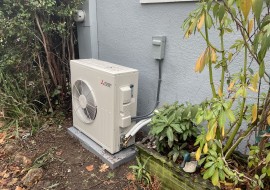The industrial sector offers tremendous opportunity for low-cost energy savings.
Agencies at the federal, state, and local levels have programs engaging the industrial sector. Electric and natural gas utilities manage a majority of the state and local programs that address energy savings at the facility level. Utility-sector ratepayer-funded programs often target specific technologies, such as motors and combined heat and power, or customer categories, such as small and medium-sized manufacturers. Programs also provide incentives to companies to invest in efficient systems and controls. Systems-level savings, such as as those from investments in intelligent efficiency and smart manufacturing, are often greater than device-level savings.
ACEEE has published four studies to communicate the value of ratepayer-funded industrial energy efficiency programs to policymakers, state governments, utility operators, and other stakeholders. Each study focuses on a particular approach to achieving greater program participation by large energy users.
- Industrial Efficiency Programs Can Achieve Large Energy Savings at Low Cost surveys the benefits of industrial programs and gives 10 tips for designing good industrial energy efficiency programs.
- The Dollars and Cents of Industrial Efficiency Program Investment describes how the combined investment of utility and customer dollars saves more energy and provides added value to customers.
- Myths and Facts about Industrial Opt-Out Provisions illustrates how to respond to arguments often made in favor of allowing industrial customers to opt out of energy efficiency programs.
- Overview of Large-Customer Self-Direct Options for Energy Efficiency Programs reviews the status of self-direct programs and opt-out provisions by state and provides tips for designing successful self-direct programs.
The centerpiece of ACEEE’s engagement in the industrial sector is its biennial Summer Study on Energy Efficiency in Industry. This conference features peer-reviewed papers and presentations and brings together professionals in the utility, energy efficiency, and energy policy sectors. Recent events have focused on strategic energy management (SEM), ISO 50001, and other continuous-improvement practices that ingrain into an organization systematic treatment of energy management.
Energy efficiency programs encourage companies to make investments in efficiency either sooner than they would on their own or that they otherwise would not make at all. Programs address a market’s failure to value the impact that private investments can have on a region’s—or even the nation’s—energy systems, environment, and economy. By addressing these market failures, efficiency programs save energy, save customers money, and improve stewardship of natural resources.
Additional resources of interest include:
- The Department of Energy Better Plants Energy Efficiency programs
- The North American Strategic Energy Management Collaborative, which seeks to spur engagement in SEM and to provide resources to help lower energy use and carbon emissions





